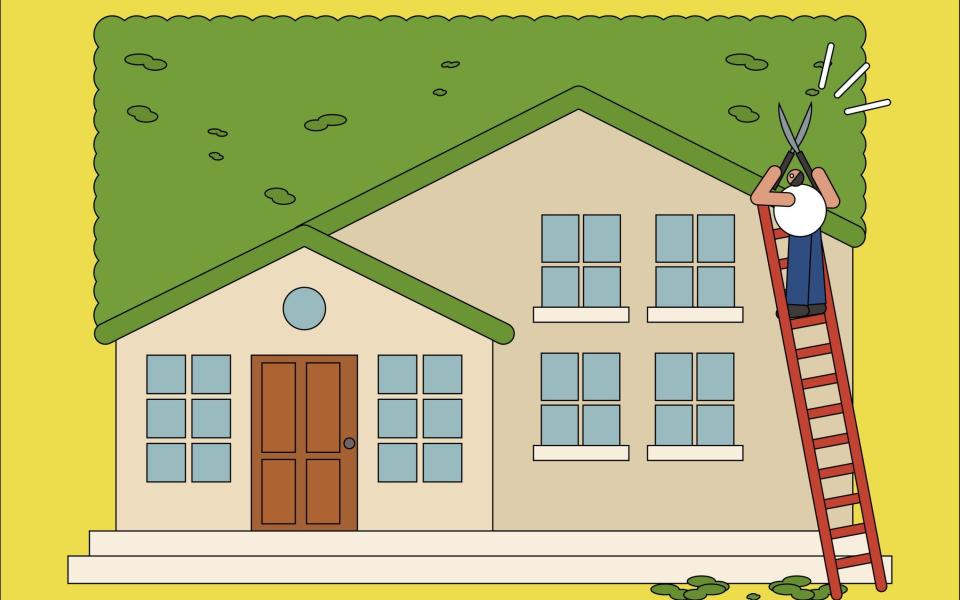New eco rules mean it will be 'cheaper for landlords to knock down homes than upgrade'

Landlords could find it cheaper to demolish properties and rebuild them instead of spending thousands of pounds on eco-upgrades to meet the Government’s green targets.
A trade body representing British housebuilders has said no matter what some buy-to-let investors do to overhaul energy-inefficient homes, “they may never get them to an EPC A, B or C”.
The Government is currently consulting on targets which would require landlords to get their rental properties up to an energy performance certificate rating of “C” or higher by 2028.
But Steve Turner of the Home Builders Federation said: “It is extremely difficult and costly to bring an older home up to the efficiency standard of a new build. For some, knocking down and starting again will be cheaper.”
Data shows that, for properties in parts of the country with low house prices, retrofitting costs could represent a quarter of a house’s total value – making it a financially eye-watering endeavour for owners.
The warning comes as landlords rush to comply with the Government's EPC targets, even as levelling up secretary Michael Gove suggested the ratings system could be overhauled.
Evidence presented to the Environmental Audit Committee in 2021 suggested that in northern England the costs and investment required to upgrade all homes to EPC C, including the installation of heat pumps, was £23,900 per property.
That figure, calculated before inflation soared, is more than double the affordability limit for landlords of £10,000 currently under consultation by the Government.
Estate agency trade body Propertymark has previously warned that the overall cost to meet net zero through retrofitting could be a lot higher than government predictions.
A report by Localis, commissioned by the trade body in 2021, found a “stark inequity” in the cost of reaching net zero across the UK.
In Burnley, Lancashire, 78pc of properties built over the past 10 years require retrofitting to get them to an energy band C.
However, the median house price in Burnley was £99,225 (at the time of the report) meaning retrofitting a property in this area could cost an owner up to 25pc of their house’s overall value.
Meanwhile, in Kensington and Chelsea, the median house price is £1.3m – meaning the cost of retrofitting represents just 1.8pc of the house's value.
Zayn Qureshi, a senior researcher at Localis, a think tank, said: “Without a tailored and localised approach that considers the varying housing economics of each locality, a one-size-fits-all approach to the funding of retrofitting threatens to deepen regional inequality and counter efforts to level up.”
“The situation risks creating a local divide between those who can and cannot upgrade to net zero energy and heating standards.”
Close to 13 million houses still have an energy performance rating of D and E, according to data updated last month by the Department for Levelling Up, Housing and Communities.
While 85pc of new builds have an A or B energy efficiency, less than 4pc of existing dwellings do, according to the Home Builders Federation.
Mr Turner said demolishing older homes would also help get around the “lengthy time” it takes to get planning permission for new homes to be built on any particular site.
Over the years, the rate of demolitions across England has fallen. In 2006, demolitions accounted for 0.1pc of the country’s housing supply. But in 2021, this proportion had fallen to 0.02pc, according to data from the levelling up department.
As a result, the time it would take to recycle England’s entire housing stock is getting longer. Back in 2006, it would have taken 1,000 years. But in 2021, this time period had climbed to nearly 4,500 years.
“We’ve stopped demolishing houses in recent years,” Mr Turner explained, who pinned the slowing down in demolition rates to an uncertainty around planning system reforms.
Demolishing may not, however, be a straightforward solution. Houses built closely together or physically joined together in a terrace, for example, would be hard to knock down.
Despite this, Mr Turner said knocking down old, energy inefficient homes would remove “one of the biggest barriers to housing delivery”.
Mr Turner is not the only one anticipating a rise in demolitions. Agents have reported a growing feeling among prospective buyers that energy inefficient houses are less valuable – in some cases to the tune of £100,000.
These reports chime with research by Midlands homebuilder Spitfire Homes, which found nearly a third (31pc) of prospective buyers think homes without sustainable features will eventually have to be knocked down and rebuilt.
The Government was approached for comment.

 Yahoo Finance
Yahoo Finance 